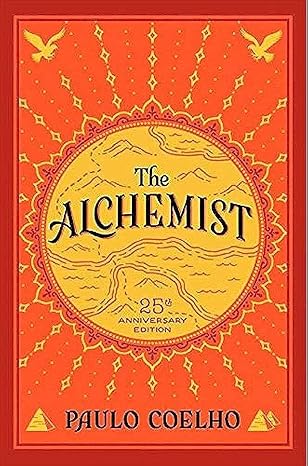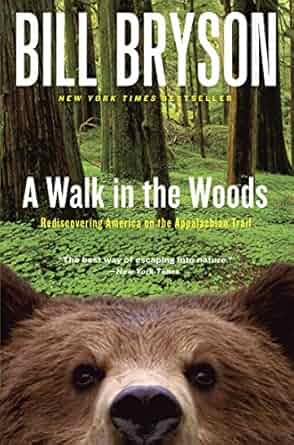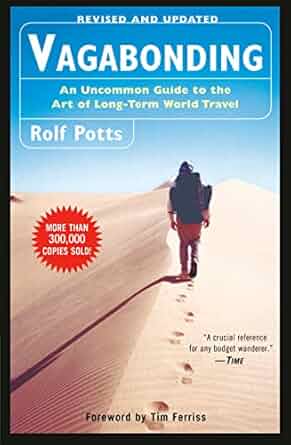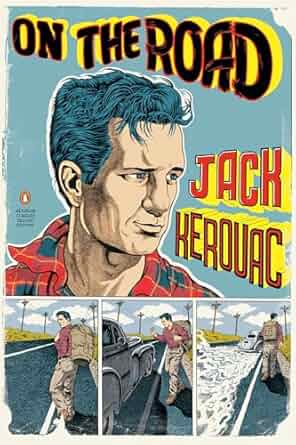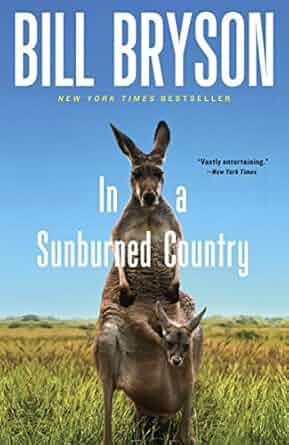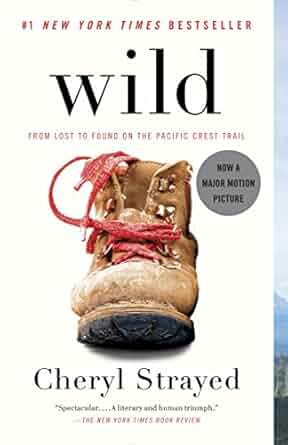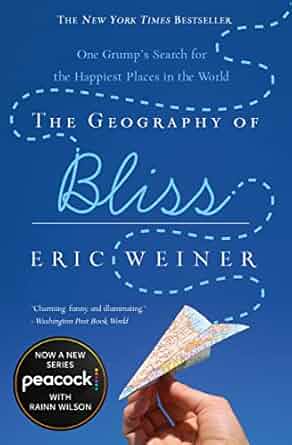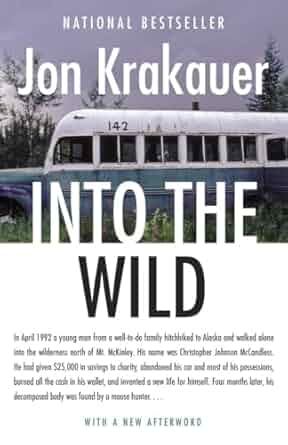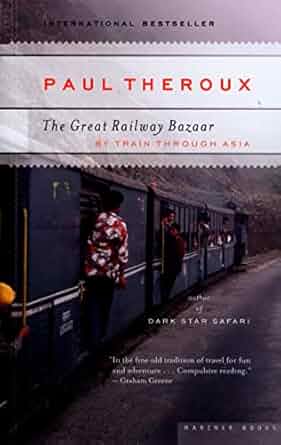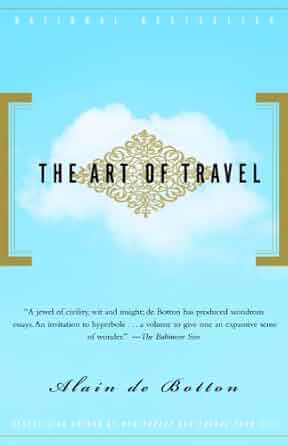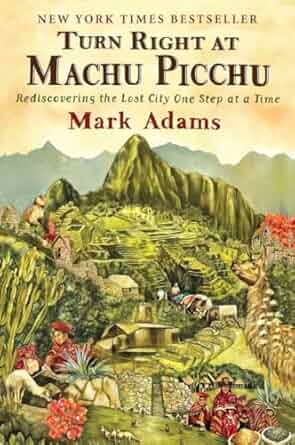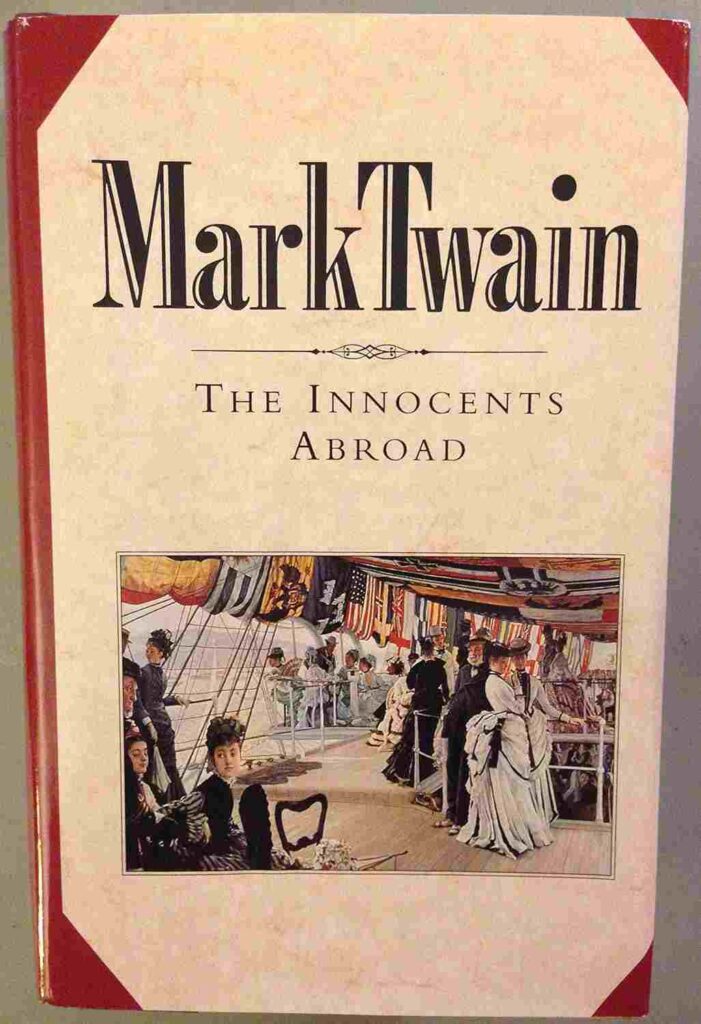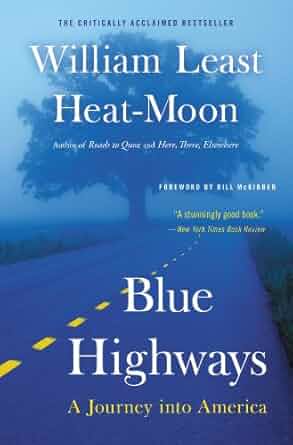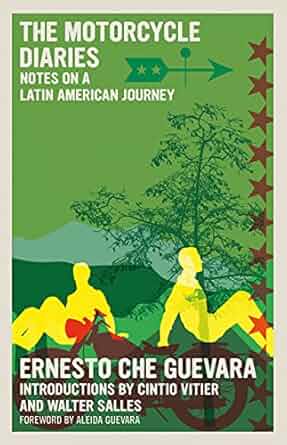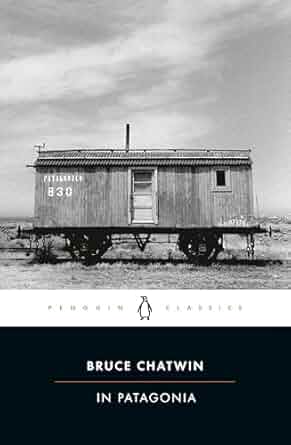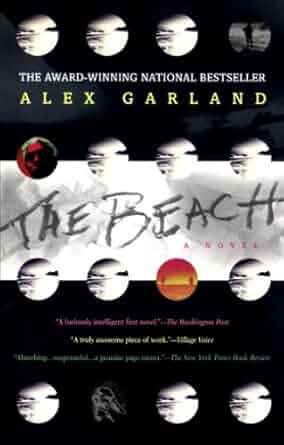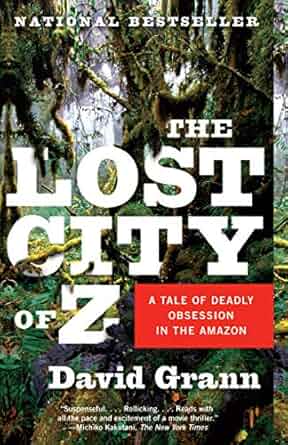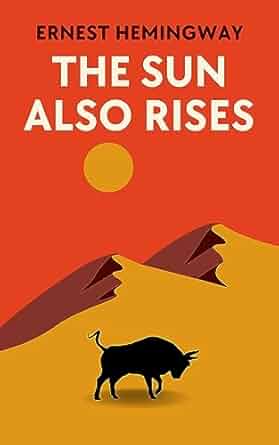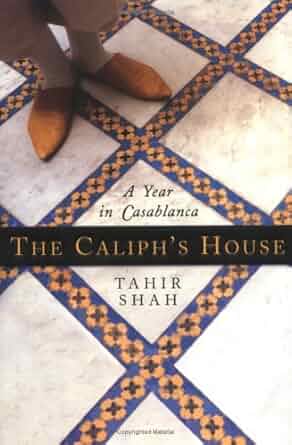Summary: In this article, I have handpicked 20 of the best travel book recommendations for dreamers, explorers, and anyone looking to experience the world through stories. My top 3:
- The Alchemist by Paulo Coelho
- A Walk in the Woods by Bill Bryson
- Vagabonding: An Uncommon Guide to the Art of Long-Term World Travel by Rolf Potts
Travel books let us explore new cultures, landscapes, and personal journeys from the comfort of home. They spark wanderlust, inspire adventure, and broaden our perspective, reminding us that every journey is a chance to grow and discover.
TOP 20: Best Travel Book Recommendations
- The Alchemist by Paulo Coelho
- A Walk in the Woods by Bill Bryson
- Vagabonding: An Uncommon Guide to the Art of Long-Term World Travel by Rolf Potts
- On the Road by Jack Kerouac
- In a Sunburned Country by Bill Bryson
- Wild: From Lost to Found on the Pacific Crest Trail by Cheryl Strayed
- Eat, Pray, Love by Elizabeth Gilbert
- The Geography of Bliss by Eric Weiner
- Into the Wild by Jon Krakauer
- The Great Railway Bazaar by Paul Theroux
- The Art of Travel by Alain de Botton
- Turn Right at Machu Picchu by Mark Adams
- The Innocents Abroad by Mark Twain
- Blue Highways by William Least Heat-Moon
- The Motorcycle Diaries by Ernesto ‘Che' Guevara
- In Patagonia by Bruce Chatwin
- The Beach by Alex Garland
- The Lost City of Z by David Grann
- The Sun Also Rises by Ernest Hemingway
- The Caliph's House: A Year in Casablanca by Tahir Shah
1. The Alchemist
- Author: Paulo Coelho
- About: The novel follows Santiago, an Andalusian shepherd boy, on his quest to find a treasure located near the Egyptian pyramids. Along his journey, he learns profound lessons about listening to his heart and pursuing his dreams.
- Style of Writing: Allegorical and philosophical, with a simple yet profound narrative.
- Length: Approximately 45,000 words.
- Year Written: 1988
- Emotional Impact: Leaves a lasting impression by inspiring readers to follow their dreams and listen to their hearts.
- Difficulty Level: Moderate; accessible language with deep symbolic meanings.
- Why Read It: Offers timeless wisdom on personal growth and the pursuit of one's destiny.
2. A Walk in the Woods
- Author: Bill Bryson
- About: Bryson recounts his attempt to hike the 2,100-mile Appalachian Trail, sharing humorous anecdotes and insights into the trail's history and ecology.
- Style of Writing: Humorous and informative, blending personal narrative with factual information.
- Length: Approximately 105,000 words.
- Year Written: 1998
- Emotional Impact: Entertains while providing thoughtful reflections on nature and perseverance.
- Difficulty Level: Easy to moderate; engaging and straightforward prose.
- Why Read It: Combines humor with insightful commentary on America's wilderness and the challenges of long-distance hiking.
3. Vagabonding
- Author: Rolf Potts
- About: A practical guide that delves into the philosophy and logistics of long-term travel, encouraging readers to embark on their own adventures.
- Style of Writing: Conversational and motivational, with practical advice and personal anecdotes.
- Length: Approximately 65,000 words.
- Year Written: 2002
- Emotional Impact: Inspires readers to see travel as a transformative life choice.
- Difficulty Level: Easy; accessible and encouraging tone.
- Why Read It: Provides valuable insights and encouragement for those considering extended travel, emphasizing personal growth and cultural immersion.
4. On the Road
- Author: Jack Kerouac
- About: This novel chronicles the cross-country adventures of Sal Paradise and Dean Moriarty, capturing the spirit of freedom and exploration.
- Style of Writing: Spontaneous prose with a stream-of-consciousness narrative.
- Length: Approximately 320 pages.
- Year Written: 1957
- Emotional Impact: Leaves a lasting impression by embodying the restless energy and quest for meaning of the Beat Generation.
- Difficulty Level: Moderate; the unconventional narrative style may require attentive reading.
- Why Read It: Considered a defining work of the Beat Generation, it offers insight into postwar American counterculture and the pursuit of freedom.
5. In a Sunburned Country
- Author: Bill Bryson
- About: Bryson explores Australia, delving into its history, culture, and unique landscapes, all told with his signature wit.
- Style of Writing: Humorous and informative, blending travel narrative with historical facts.
- Length: Approximately 335 pages.
- Year Written: 2000
- Emotional Impact: Entertains while providing a deep appreciation for Australia's uniqueness.
- Difficulty Level: Easy to moderate; engaging and accessible prose.
- Why Read It: Offers a delightful and informative journey through Australia, highlighting its quirks and wonders.
6. Wild
- Author: Cheryl Strayed
- About: A memoir of Cheryl Strayed’s solo journey along the Pacific Crest Trail, undertaken as a way to heal and rediscover herself after personal tragedies.
- Style of Writing: Emotional and introspective, with vivid descriptions of nature and raw personal reflections.
- Length: Approximately 114,000 words (315 pages).
- Year Written: 2012
- Emotional Impact: Deeply moving and inspiring; leaves a strong impression of resilience and self-discovery.
- Difficulty Level: Moderate; accessible but emotionally intense.
- Why Read It: A compelling story of courage and healing, with a profound connection to nature and the challenges of solitude.
7. Eat, Pray, Love
- Author: Elizabeth Gilbert
- About: The memoir follows Gilbert’s year-long journey through Italy, India, and Indonesia, seeking pleasure, spirituality, and balance after a divorce.
- Style of Writing: Personal and conversational, with a blend of humor, emotion, and insight.
- Length: Approximately 125,000 words (352 pages).
- Year Written: 2006
- Emotional Impact: Uplifting and relatable; leaves readers pondering their own paths to happiness.
- Difficulty Level: Easy; straightforward and engaging prose.
- Why Read It: Encourages readers to explore their inner selves while embracing the joys of travel and connection.
8. The Geography of Bliss
- Author: Eric Weiner
- About: A humorous and insightful journey across countries known for being happy or unhappy, as the author seeks the secret to happiness.
- Style of Writing: Witty, observational, and deeply reflective.
- Length: Approximately 100,000 words (345 pages).
- Year Written: 2008
- Emotional Impact: Entertaining and thought-provoking, offering fresh perspectives on happiness and culture.
- Difficulty Level: Easy to moderate; engaging and accessible with some philosophical undertones.
- Why Read It: Combines humor and insight to explore the universal quest for happiness through the lens of travel.
9. Into the Wild
- Author: Jon Krakauer
- About: The true story of Christopher McCandless, who abandoned his possessions and hitchhiked to Alaska in search of a simpler life, leading to a tragic outcome.
- Style of Writing: Investigative and narrative, with a mix of factual reporting and poetic reflections.
- Length: Approximately 69,000 words (207 pages).
- Year Written: 1996
- Emotional Impact: Haunting and deeply thought-provoking, leaving a lasting impact on readers’ views of freedom and survival.
- Difficulty Level: Moderate; requires reflection on complex themes.
- Why Read It: Explores the allure of wilderness, the human spirit, and the costs of pursuing an uncompromising ideal.
10. The Great Railway Bazaar
- Author: Paul Theroux
- About: A classic account of Theroux’s journey by train through Europe, the Middle East, India, and Southeast Asia, exploring cultures and characters along the way.
- Style of Writing: Richly descriptive and observational, with moments of humor and critique.
- Length: Approximately 135,000 words (400 pages).
- Year Written: 1975
- Emotional Impact: Fascinating and immersive, offering a vivid portrait of travel and human connections.
- Difficulty Level: Moderate; richly detailed with a literary tone.
- Why Read It: A seminal travel narrative that captures the romance and unpredictability of train travel.
11. The Art of Travel
- Author: Alain de Botton
- About: A philosophical exploration of why we travel, examining how art, poetry, and the world around us influence our journeys.
- Style of Writing: Reflective and intellectual, blending narrative with philosophical musings.
- Length: Approximately 75,000 words (272 pages).
- Year Written: 2002
- Emotional Impact: Thought-provoking and enlightening, encouraging readers to see travel as an opportunity for deeper self-awareness.
- Difficulty Level: Moderate; requires reflection on philosophical themes.
- Why Read It: Offers unique insights into the emotional and psychological aspects of travel.
12. Turn Right at Machu Picchu
- Author: Mark Adams
- About: Adams retraces the steps of Hiram Bingham’s original expedition to Machu Picchu, blending history, adventure, and humor.
- Style of Writing: Humorous and engaging, with a mix of historical narrative and personal experiences.
- Length: Approximately 85,000 words (333 pages).
- Year Written: 2011
- Emotional Impact: Entertaining and informative, leaving readers inspired to explore historical wonders.
- Difficulty Level: Easy to moderate; accessible and engaging prose.
- Why Read It: Combines history and adventure, making it a must-read for those curious about South America and its ancient mysteries.
13. The Innocents Abroad
- Author: Mark Twain
- About: Twain’s humorous and insightful account of his travels through Europe and the Holy Land, offering a 19th-century perspective on tourism.
- Style of Writing: Satirical and witty, with keen observations of cultural differences.
- Length: Approximately 195,000 words (720 pages).
- Year Written: 1869
- Emotional Impact: Entertains and educates, leaving readers with a fresh perspective on travel and cultural interactions.
- Difficulty Level: Moderate; 19th-century language may require some effort.
- Why Read It: A classic travelogue that captures the essence of exploration with Twain’s trademark humor.
14. Blue Highways
- Author: William Least Heat-Moon
- About: A journey through America’s backroads, exploring small towns and forgotten places, capturing the country’s diverse cultures and landscapes.
- Style of Writing: Reflective and descriptive, with rich detail and thoughtful insights.
- Length: Approximately 120,000 words (448 pages).
- Year Written: 1982
- Emotional Impact: Inspiring and contemplative, offering a heartfelt portrait of America’s hidden gems.
- Difficulty Level: Moderate; descriptive and introspective tone requires focus.
- Why Read It: A beautifully written exploration of America’s overlooked and offbeat places.
15. The Motorcycle Diaries
- Author: Ernesto ‘Che' Guevara
- About: Guevara’s memoir of his motorcycle journey across South America as a young man, revealing his awakening to social injustices and the continent’s beauty.
- Style of Writing: Personal and reflective, with vivid descriptions and social commentary.
- Length: Approximately 60,000 words (175 pages).
- Year Written: 1993 (posthumous publication, based on his 1952 journey).
- Emotional Impact: Poignant and thought-provoking, leaving readers with a deeper understanding of Latin America’s struggles and spirit.
- Difficulty Level: Moderate; a mix of travel narrative and political undertones.
- Why Read It: Offers a unique perspective on South America through the eyes of a young revolutionary in the making.
16. In Patagonia
- Author: Bruce Chatwin
- About: A travelogue of Chatwin’s adventures in Patagonia, blending personal anecdotes with the region’s history, myths, and legends.
- Style of Writing: Lyrical and fragmented, combining vivid descriptions with reflective storytelling.
- Length: Approximately 65,000 words (240 pages).
- Year Written: 1977
- Emotional Impact: Intriguing and evocative; leaves a lasting impression of Patagonia’s mystery and allure.
- Difficulty Level: Moderate; poetic and non-linear narrative style.
- Why Read It: A classic travel book that captures the spirit of one of the world’s most remote and fascinating regions.
17. The Beach
- Author: Alex Garland
- About: A novel about a backpacker’s quest for an idyllic, untouched Thai beach, exploring themes of utopia, human nature, and the darker side of paradise.
- Style of Writing: Suspenseful and immersive, with sharp dialogue and vivid imagery.
- Length: Approximately 110,000 words (448 pages).
- Year Written: 1996
- Emotional Impact: Captivating and unsettling; raises questions about idealism and human behavior.
- Difficulty Level: Easy to moderate; fast-paced and engaging prose.
- Why Read It: A gripping story that captures the backpacker ethos and the complexities of seeking perfection.
18. The Lost City of Z
- Author: David Grann
- About: The true story of British explorer Percy Fawcett’s disappearance in the Amazon while searching for a mythical lost city, interwoven with Grann’s own investigation.
- Style of Writing: Investigative and suspenseful, blending history, biography, and adventure.
- Length: Approximately 100,000 words (352 pages).
- Year Written: 2009
- Emotional Impact: Thrilling and thought-provoking; leaves readers marveling at human ambition and the mysteries of the Amazon.
- Difficulty Level: Moderate; detailed and narrative-driven.
- Why Read It: Combines history and exploration with a gripping mystery.
19. The Sun Also Rises
- Author: Ernest Hemingway
- About: Follows a group of expatriates traveling from Paris to Spain, exploring themes of love, disillusionment, and the search for meaning after World War I.
- Style of Writing: Sparse and evocative, with Hemingway’s signature understated prose.
- Length: Approximately 70,000 words (251 pages).
- Year Written: 1926
- Emotional Impact: Poignant and reflective; leaves readers contemplating the human condition.
- Difficulty Level: Moderate; simple language with deep emotional undercurrents.
- Why Read It: A literary classic that captures the spirit of the Lost Generation and the allure of travel.
20. The Caliph's House: A Year in Casablanca
- Author: Tahir Shah
- About: Shah’s memoir of moving his family to a dilapidated mansion in Casablanca, detailing the challenges and charms of adapting to Moroccan culture.
- Style of Writing: Humorous and insightful, with vivid descriptions and engaging anecdotes.
- Length: Approximately 95,000 words (368 pages).
- Year Written: 2006
- Emotional Impact: Entertaining and heartwarming; offers a unique perspective on cross-cultural adaptation.
- Difficulty Level: Easy to moderate; engaging and accessible prose.
- Why Read It: A delightful account of embracing a new culture and overcoming challenges with humor and resilience.
Conclusion
Travel books do more than tell stories—they inspire, educate, and ignite a sense of wonder. For me, The Alchemist, A Walk in the Woods, and Vagabonding are the top must-reads. The Alchemist is a beautiful story about following your dreams that I found deeply inspiring. A Walk in the Woods had me laughing out loud while appreciating the beauty and challenges of nature. And Vagabonding completely changed the way I think about long-term travel, with its practical advice and empowering philosophy. These books, in my opinion, capture the true essence of travel—its ability to transform, connect, and enrich our lives. Whether you’re dreaming of adventure or planning your next trip, I’m confident these stories will spark your wanderlust and leave a lasting impression.

